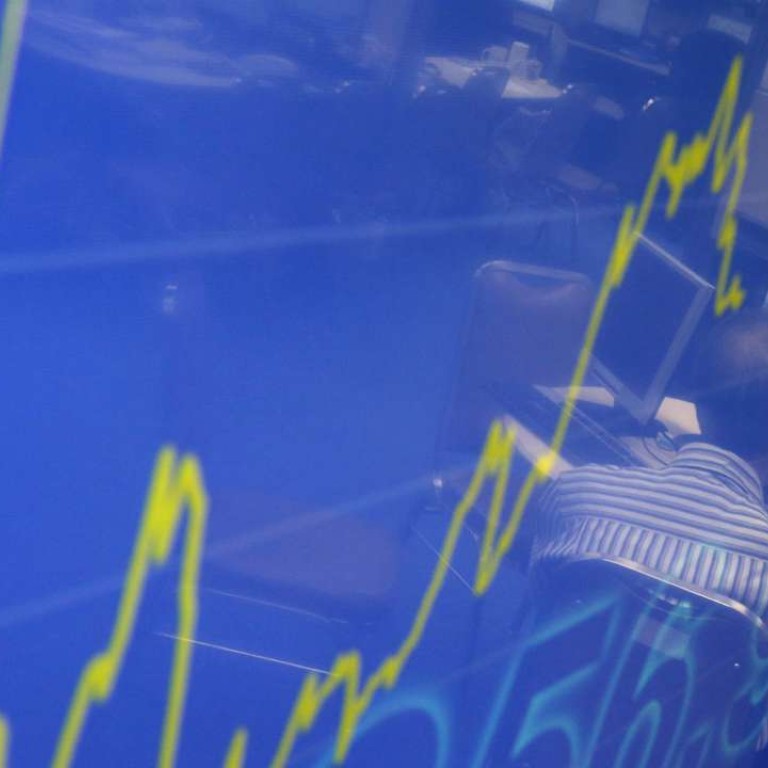
Profit takers jump in to end six-day Hong Kong rally
Traders still hopeful market has the momentum to top 22,000, fuelled by aggressive national monetary policies in Japan and Europe
Hong Kong stocks registered a moderate loss, on a quiet Tuesday, their first decline in seven days on concern the recent rally was excessive without fundamental support.
The Hang Seng Index shed 0.6 per cent or 129.98 points to end at 21,673.20, after consecutive rises on the previous six trading days.
The Hang Seng China Enterprises Index lost 1.12 per cent or 102.16 to 8988.79.
Turnover continued to remain weak, at HK$ 54.95 billion, the lowest level in seven trading days.
Agricultural and food and beverages sectors led the loss. China Mengniu Dairy dropped 2.08 per cent to HK$ 13.2. Tingyi Cayman Islands declined 1.01 per cent to HK$ 6.88. Want Want China decreased 0.96 per cent to HK$ 5.14.
Insurance stocks were also among the biggest losers, down 0.67 per cent on average as a group.
Ping An led the drop, declining 1.77 per cent to HK$ 36.1.

Cathay Pacific Airways was the worst performing blue chip, with its shares falling 2.87 per cent to HK$12.20. Esprit Holdings jumped 9.7 per cent to HK$6.67 as the company said it may break-even for the financial year ended June 30.
Francis Lun, Fulbright Securities general manager, said “normal” profit-taking had halted the six day rally, after the benchmark hit its highest level in 2016.
“The rise in US stocks was quite slim on Monday on a lack of momentum, putting Hong Kong stocks under some pressure,” Lun said.
The Hang Seng Index climbed to its highest level so far this year on Monday, rising 0.66 per cent or 143.9 points to HK$21,803.18. Total turnover then was a relatively thin HK$55.54 billion.
Victor Au, the chief operating officer at Delta Asia Securities agreed with Lun, saying that a retreat in Hong Kong stocks “normally” comes when there is a lack of any strong stimulus after a record high.
However near term, Au said the market still had the momentum to top 22,000 points as investors expect aggressive and radical national monetary policies.
Helicopter money, he said — when a central bank directly finances budget stimulus to support a country’s economy — is expected in Japan and Europe.
“If aggressive monetary easing policies come, they will drive up Hong Kong stocks,” said Au.
“The fundamentals for the city’s equity market have not changed, however, and the interest in defensive stocks is likely to remain with investors, including local property developers.”
Telecommunications led the gains on Tuesday, jumping 3.8 per cent as a group, despite the market dropped. Mining and utilities sectors also saw increases.
In mainland markets, the Shanghai Composite Index fell 0.23 per cent or 6.97 points to 3,036.60 on Tuesday. The CSI 300 — which tracks large companies listed in Shanghai and Shenzhen — was down 0.42 per cent to 3,248.23.
The Shenzhen Composite Index inched up 0.32 per cent or 6.58 points to 2,034.45 while the Nasdaq-style ChiNext increased 1.06 per cent to 2,273.72.


